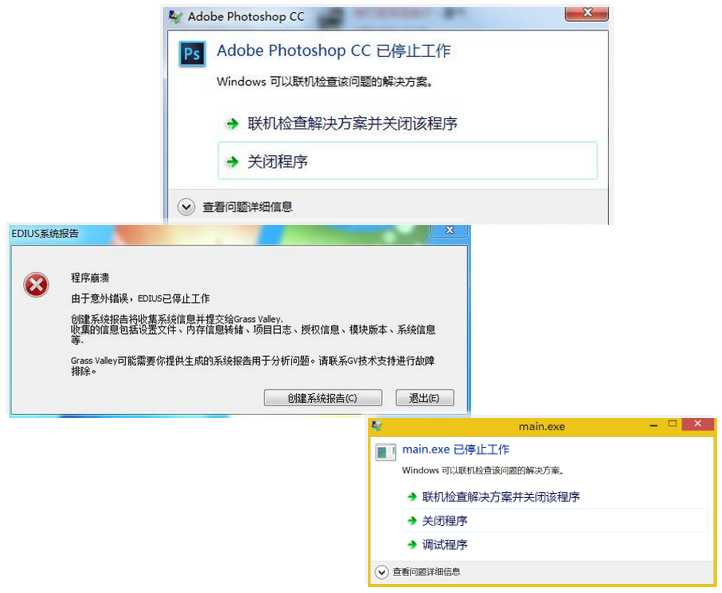Java基础教程——异常处理详解
Posted tigerlion
tags:
篇首语:本文由小常识网(cha138.com)小编为大家整理,主要介绍了Java基础教程——异常处理详解相关的知识,希望对你有一定的参考价值。
异常处理
好程序的特性
- 可重用性
- 可维护性
- 可扩展性
- 鲁棒性
|--|--Robust的音译
|--|--健壮、强壮之意
|--|--指在异常和危险情况下系统依然能运行,不崩溃

Java中,写下如下代码:
public class TestException
public static void main(String[] args)
int a = 10 / 0;
System.out.println("-END-");
代码运行到“10 / 0”时出错,整个程序会中断,表现为最后的"-END-"没有输出。
java.lang.ArithmeticException: / by zero很显然这不算好的程序,好的程序应该做好异常处理,不能说一处出错整体崩盘。
异常处理
异常处理,就是当程序出了错误时,系统不崩溃。
顶层类:Throwable
| 大分类 | 小分类 | |
|---|---|---|
| Error | 处理不了 | |
| Exeption | 编译时异常 | 必须处理(不处理编译不通过) |
| 运行时异常 | 可以处理 |
Error示例:
public class TestError
// Exception in thread "main" java.lang.StackOverflowError
public static void main(String[] args)
m();
static void m()
m();
不断递归,导致出现栈溢出:
Exception in thread "main" java.lang.StackOverflowError编译时异常:
import java.io.FileNotFoundException;
public class 异常处理
static void TestException1()
try
throw new FileNotFoundException("编译时异常,必须处理,要么自己处理,要么抛出");
catch (FileNotFoundException e)
e.printStackTrace();
static void TestException2() throws FileNotFoundException
throw new FileNotFoundException("编译时异常,必须处理,要么自己处理,要么抛出");
public static void main(String[] args)
TestException1();
try
TestException2();
catch (FileNotFoundException e)
e.printStackTrace();
try.catch.finally
Try尝试执行
Catch出错时执行
Finally出不出错都执行,在return之前执行public class 异常处理
public static void main(String[] args)
int a = 10, b = 0;
TestException(a, b);
static boolean TestException(int a, int b)
try
System.out.println(a / b);
catch (ArithmeticException e) // 声明,此处可能抛出"算术异常"
System.out.println("系统维护中,请稍后重试");
return false;
finally
System.out.println("---END---");
return true;
运行结果:
系统维护中,请稍后重试
---END---try(with resources)语法
从Java 7开始,Java支持try-with-resources 语句,称为 ARM 块(Automatic Resource Management) ,自动资源管理——try...catch代码运行完毕后,自动释放资源,即使出现异常也会关闭资源。
这种语句可以使得try...catch代码变得简洁(手动关闭资源往往需要考虑多种场景,导致代码臃肿)。
这个功能在IO中用的比较多,Scnner没必要做异常处理,以下仅是一个示例:
import java.util.Scanner;
public class TryWith
public static void main(String[] args)
testTryWith();
testTryWith();
private static void testTryWith()
try (Scanner sc = new Scanner(System.in))
sc.nextLine();
catch (Exception e)
e.printStackTrace();
finally
System.out.println("finally");
finally
java.util.NoSuchElementException: No line found
finally扩展阅读:
[try...catch的前世今生]: https://www.cnblogs.com/tigerlion/p/10659675.htmlthrow自定义异常
自定义异常类,继承Excption类
一般需要写一个带参构造方法
public class Test自定义异常
public static void main(String[] args)
int a = 10;
TestException(a);
static boolean TestException(int money)
try
if (money < 10000)
// 拋一個異常對象
throw new DidiException("系統升級,請半年后重試");
catch (Exception e) // 声明,此处可能抛出"算术异常"
e.printStackTrace();
return false;
finally
System.out.println("---END---");
return true;
class DidiException extends Exception
public DidiException(String message)
super(message);
运行结果:
DidiException: 系統升級,請半年后重試
---END---
at Test自定义异常.TestException(Test自定义异常.java:10)
at Test自定义异常.main(Test自定义异常.java:4)以上是关于Java基础教程——异常处理详解的主要内容,如果未能解决你的问题,请参考以下文章